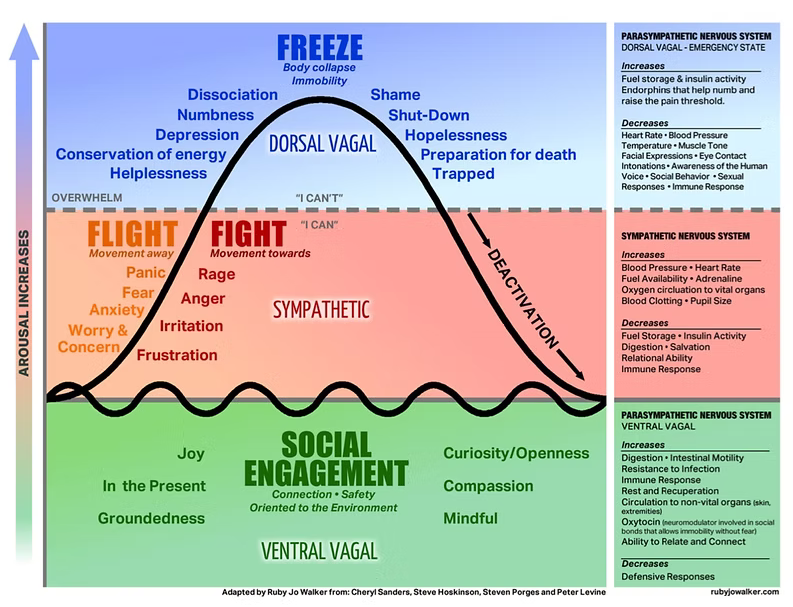Level 1: Core Principles of Somatic Experiencing (SE)
Level 1: Core Principles of Somatic Experiencing (SE)
Definition of Somatic Experiencing
Somatic Experiencing (SE) is a body-centered therapy that helps individuals process and release trauma through awareness of physical sensations, restoring the nervous system’s natural regulation.
Polyvagal Theory & Nervous System Regulation
The autonomic nervous system (ANS) plays a crucial role in trauma responses.
SE focuses on moving between sympathetic (fight/flight) and parasympathetic (rest/digest) states to facilitate healing.
The SE Trauma Healing Process
Trauma disrupts the body’s ability to process stress, leading to dysregulation.
SE facilitates gentle renegotiation of trauma rather than re-experiencing it fully.
Key SE Concepts
Pendulation: Moving between tension and relaxation to regulate emotions.
Titration: Processing trauma in small, manageable steps to prevent overwhelming the nervous system.
SIBAM Model: Sensation, Image, Behavior, Affect, and Meaning—components of trauma resolution.
Body Awareness & Felt Sense
Developing mindfulness of body sensations to recognize stored trauma.
SE helps clients reconnect with their bodies through grounding and gentle movement.
SE Techniques for Self-Regulation
Grounding exercises (breathing, sensation tracking, movement awareness).
Self-soothing strategies (gentle touch, safe space visualization, progressive relaxation).
Target Populations
Individuals with PTSD, chronic stress, anxiety, depression, and dissociation.
Beneficial for those with medical trauma, attachment trauma, and early developmental wounds.
Ethical Considerations
Ensuring trauma-sensitive approaches that avoid retraumatization.
Encouraging gradual engagement rather than forced exposure to distress.
SE and DREAM Integration
DREAM AI can guide users through SE-inspired exercises, tracking nervous system responses, and providing real-time adjustments to support trauma healing.
AI vs. Human Practitioner Collaboration: DREAM AI supports but does not replace human-guided SE therapy.


© 2025. DREAMHEALER.ORG All rights reserved.
